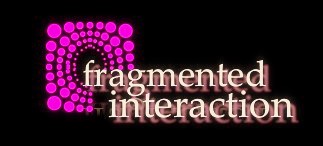Random House has launched an ebook reader on the Apple App Store for the iPhone and iPod Touch.
Users of the app will be able to download digital editions of titles from authors such as James Patterson, Ben Elton and Richard Branson.
They can turn pages, make notes on pages and change font style and size.
Jonathan Davis, digital publisher at Random House Group Digital, said, “This is the first time a major UK publisher has made mass-market books available via the Apple App Store. The iPhone and iPod Touch are fantastic convergence devices and we’re delighted customers can now enjoy digital versions of some of our bestselling books on a device which fits neatly in their pocket.”
The ebook app costs £7.49.
Last week the publisher launched a community site for book lovers (nma.co.uk 22 May 2009). Users can set up their own profile page and rate and review books.
Wednesday, May 27, 2009
Thursday, May 7, 2009
Kidulthood as emoticons
In thinking about emoticons as a language option, as a reading option, I have copied the opening of Noel Clarke's 'Kidulthood' novel into Zlango, an emoticon translation site that allows you to 'ping' emoticon texts and messages to mobile phones.
Here's what came out...

and here's the original text...
'Katie Fineal was in hell. She stood on the school playing field, barely aware of the sounds of the players and the small crowd of watchers coming from the football match. All she knew was that she hurt, both outside and inside, Ffteen years old, and her life was misery. Beaten and humilated by Shaneek and Carleen, the leaders ofthe gang of girl bullies in her year at school, and no one came to her help.'
Is it easier to read, quicker to comprehend, in Zlango??
What do you think???
Here's what came out...
and here's the original text...
'Katie Fineal was in hell. She stood on the school playing field, barely aware of the sounds of the players and the small crowd of watchers coming from the football match. All she knew was that she hurt, both outside and inside, Ffteen years old, and her life was misery. Beaten and humilated by Shaneek and Carleen, the leaders ofthe gang of girl bullies in her year at school, and no one came to her help.'
Is it easier to read, quicker to comprehend, in Zlango??
What do you think???
10 things you didn't know about emoticons
I've recently written a short play for the Museum for the Future of the History of the Book - an if:book project for schools - and gave myself a headache trying to zone out and imagine literature of the future, more precisely, the next 1,000 years.
I found myself looking back at hieroglyphics and realising that this was possibly the way forward (backward, if you get what I mean!).
This nifty little link somewhat bridges the gap between the ancient art of hieroglyphics and the 'modern' trend for emoticons. According to this piece, the first emoticons were published on March 30, 1881 by (the now defunct) US satirical magazine Puck.
http://www.neatorama.com/2009/05/05/10-things-you-didnt-know-about-emoticons/

I found myself looking back at hieroglyphics and realising that this was possibly the way forward (backward, if you get what I mean!).
This nifty little link somewhat bridges the gap between the ancient art of hieroglyphics and the 'modern' trend for emoticons. According to this piece, the first emoticons were published on March 30, 1881 by (the now defunct) US satirical magazine Puck.
http://www.neatorama.com/2009/05/05/10-things-you-didnt-know-about-emoticons/

Monday, May 4, 2009
Subscribe to:
Posts (Atom)


